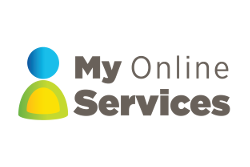RSV in young childrenThe HSE continues to see a rise in the number of young children with respiratory syncytial virus (RSV). It’s important to protect babies and toddlers from common winter viruses like RSV and flu. Download the pack at the bottom of this email for social media assets to encourage parents and guardians to keep unwell children at home, clean hands and cover coughs or sneezes. Advice for parents on dealing with children’s colds, coughs and viral infections is available here. Winter Vaccines CampaignThe HSE continues to urge people in Ireland to get their recommended winter vaccines for flu and COVID-19. You can view the TV ad here. This campaign brings flu and COVID-19 vaccines together for the people who need vaccines this winter – older people (this includes anyone aged 50+ who’s yet to get their COVID-19 booster, and people aged 65+ cohort for their next booster and flu vaccine), healthcare workers, parents of children, people with long term conditions, and anyone who’s pregnant. Both flu and COVID-19 vaccines are now available from participating GPs and Pharmacies and can be given at the same time. 15 vaccination centres across the country are also providing free COVID-19 vaccines. Please find more information at hse.ie Keeping on top of COVID, flu and other winter virusesA new campaign encouraging all of us to take the easy steps required to maximise protection from COVID-19 and other winter viruses, by, keeping up to date with vaccines and boosters, staying at home if sick, wearing masks, practicing good hygiene and ventilating spaces where possible launched last week. Children’s Nasal Flu Vaccine CampaignThe HSE also asks parents in Ireland to get children aged 2 to 17 vaccinated against the flu. The children’s nasal spray flu vaccine is available free for all children aged 2 to 17. The vaccine is given as a spray in each nostril. It is not painful and is absorbed quickly. Your child’s vaccine is available from your GP or pharmacy. You can find more information here. #KnowPneumo CampaignThis month the National Immunisation Office (NIO) launches #KnowPneumo - a social and digital campaign to raise awareness about pneumococcal disease and encourage uptake in at-risk groups. Pneumococcal disease, or pneumo, can affect anyone at any time in the year but we usually see most cases during the winter months. For some people pneumococcal disease can be dangerous – it can lead to serious problems like pneumonia and meningitis. It is responsible for 50% of pneumonia cases in the community. Older people are more likely to suffer serious long-term health problems from pneumo and can even die. Getting the pneumococcal vaccine is the best way to protect yourself from pneumo. The pneumococcal vaccine PPV23 is recommended for - People aged 65 and over
- People with a weakened immune system
- People with certain long-term conditions
Everyone aged 65 and over only needs to get the vaccine once to be protected. You can get the vaccine at your GP practice. Please find more information at immunisation.ie What is my COVID-19 vaccination course?You can download a visual guide on the recommended COVID-19 vaccination course for people living in Ireland. COVID-19 and booster updatesPeople in the following groups who haven't had a second booster vaccine can now boost their protection: - People aged 50 and older.
- People aged 12 or over with a long-term health condition like diabetes, asthma or heart disease. Please find the lists of health conditions here.
- Healthcare workers.
- Anyone who is at least 16 weeks pregnant. If you're pregnant and you haven't had a first booster, you can get this at any stage of your pregnancy.
Your next COVID-19 vaccine will help protect you from serious illness in the months ahead. This is because protection from previous vaccines or from COVID-19 infection decreases over time. If you've had COVID-19 recently, wait 4 months before booking your vaccine appointment. Vaccines are also available from participating GPs and pharmacies. For more up to date information or to book an appointment in a HSE vaccination centre, visit hse.ie or call our team in HSE Live on 1800 700 700. Staying safe if you are at higher risk of COVID-19The things you have been doing all along to protect your health will still work to keep you safer. You can find information on how to stay safe here. COVID-19 Testing Details are available here. Paxlovid™ in IrelandPaxlovid™ is an oral medication used to treat COVID-19. It can be used to treat people who are at highest risk and should be taken in the first 5 days of illness. Paxlovid™ may not be suitable for all patients, but it can be considered for: - Vaccinated people aged 75 or over
- Vaccinated people aged 65 or over who also have additional risks including obesity (BMI over 35), diabetes, high blood pressure, cardiovascular disease
If you have COVID-19 symptoms and are at higher risk, talk to your GP or hospital team. You can find more information here. COVID-19 vaccine resourcesThe HSE produces and regularly updates resources for the COVID-19 vaccine. You can visit the COVID-19 vaccine materials page for the latest leaflets and booklets including information on boosters and vaccines for children. COVID-19 information in other languages Visit hse.ie/translations for a range of COVID-19 vaccine information videos and resources that have been produced in other languages, including information on COVID-19 vaccination in pregnancy. Information videos on COVID-19 vaccination for parents of children aged 5-11 are available here. Health service updates and information:NIO Lunch 'n' Learn Webinar On Wednesday 30th November 2022 the National Immunisation Office invites you to the first webinar of their Lunch 'n' Learn series - Increasing Uptake for the Children’s Nasal Flu Vaccine. The webinar will take place from 12pm – 1pm. To register for this webinar, click here. Join us as we hear from experts on the importance of the children’s nasal flu vaccine this flu season, on how to communicate with parents/guardians about the vaccine and commonly asked questions, on what resources are available for healthcare professionals, and on their experiences. This webinar has also been applied for CPD approval. Free on-line Stress control programmeHSE Health and Wellbeing are offering a free on-line stress control programme, beginning on Monday. 14th November. This is an evidence-based programme that teaches you practical skills to deal with stress, recognise the signs of stress and how it affects our bodies and our thoughts. It also teaches skills to overcome panicky feelings and tips to getting a good night’s sleep. Simply visit www.stresscontrol.ie Colds, coughs and viral infections in childrenDuring winter, babies and toddlers tend to pick up more viruses than usual, and RSV is one that’s around now particularly among children from 0 to 4. The poster at the bottom of this email can be printed out and displayed to encourage parents and guardians to keep unwell children at home. Advice for parents on dealing with children’s colds, coughs and viral infections is available here. Young People and Alcohol: What we know and what we can do about it?The HSE Health and Wellbeing Alcohol Programme is hosting a webinar as part of EU Alcohol Awareness Week. The webinar will take place on Wednesday 30th November from 11.30am-1:00pm. This is an opportunity to discuss growing up in Ireland and the current statistics around alcohol use among adolescents and young people. We will be joined by an expert panel who will discuss how we, as a society, can help raise awareness on how to protect young people in Ireland from the harms of alcohol and the wider environmental impacts. Speakers Anne Doyle (HRB), Alexander Tran (WHO Research Consultant), Eoin McNamara (ESRI) will discuss their research around the topic, followed by a panel discussion. You can register online here. Let’s go easy on the treatsNew START campaign research shows that 20% of calorie intake for children aged 2 to 4 is from treats foods like biscuits, chocolate, soft drinks and savoury snacks. This rises to 25% for children of primary school age. We’re encouraging parents to go easy on the treats, with healthy snacks when children are hungry and smaller treats less often. Order leaflets and posters at www.healthpromotion.ie or contact us for our guide to running a small event. Look out for campaign messages from safefood’s Twitter, Instagram or Facebook and please share with your networks. Mental Health CampaignThe HSE has launched a new national campaign highlighting the common signs of mental health difficulties that many of us are experiencing. It encourages people to explore the range of information and resources available on YourMentalHealth.ie to find support that can help you. We would be grateful for your help in sharing this important campaign information. You can find the campaign partner pack at the bottom of this email with details on how you can share the campaign with your networks and colleagues. Health service information for Ukrainian nationals- Updated mental health supports information is here
- Disability services information is here
- Healthcare services information is here
- COVID-19 information is here
- COVID-19 vaccination video Dr Oksana Kozdoba, a Pediatrician from Ukraine, shares information about the vaccination programme in Ireland. She covers the vaccines offered in Ireland to protect babies, school children and adults.
Stay safeCOVID-19 is still with us. These are important things that we can all keep doing to help reduce infection: - Isolate if you are symptomatic (even if you are fully vaccinated and boosted) or if you are diagnosed with COVID-19
- If you have symptoms, stay at home until 48 hours after symptoms resolve
- Complete your primary and booster programme of vaccination
- Continue to manage risk for yourself and others who are more vulnerable. You can do this by wearing masks, physical distancing and avoiding crowds as well as maintaining basic hand and respiratory hygiene
Public Health InformationFor updated information and advice on Coronavirus, please go to: https://www2.hse.ie/conditions/covid19/ and https://www.hpsc.ie/a-z/respiratory/coronavirus/novelcoronavirus/. Clinical and professional guidance relating to COVID-19 is available on www.hpsc.ie where you’ll find up-to-date guidance for healthcare settings and non-clinical settings. Please check here for partner resources for COVID-19. You can find translated resources here. You can find the COVID-19 A-Z information here from the HSE’s Health Protection Surveillance Centre (HPSC). You can view the latest information on how Ireland is responding to cases of COVID-19 here. Ireland’s COVID-19 Data Hub is available here. | 
